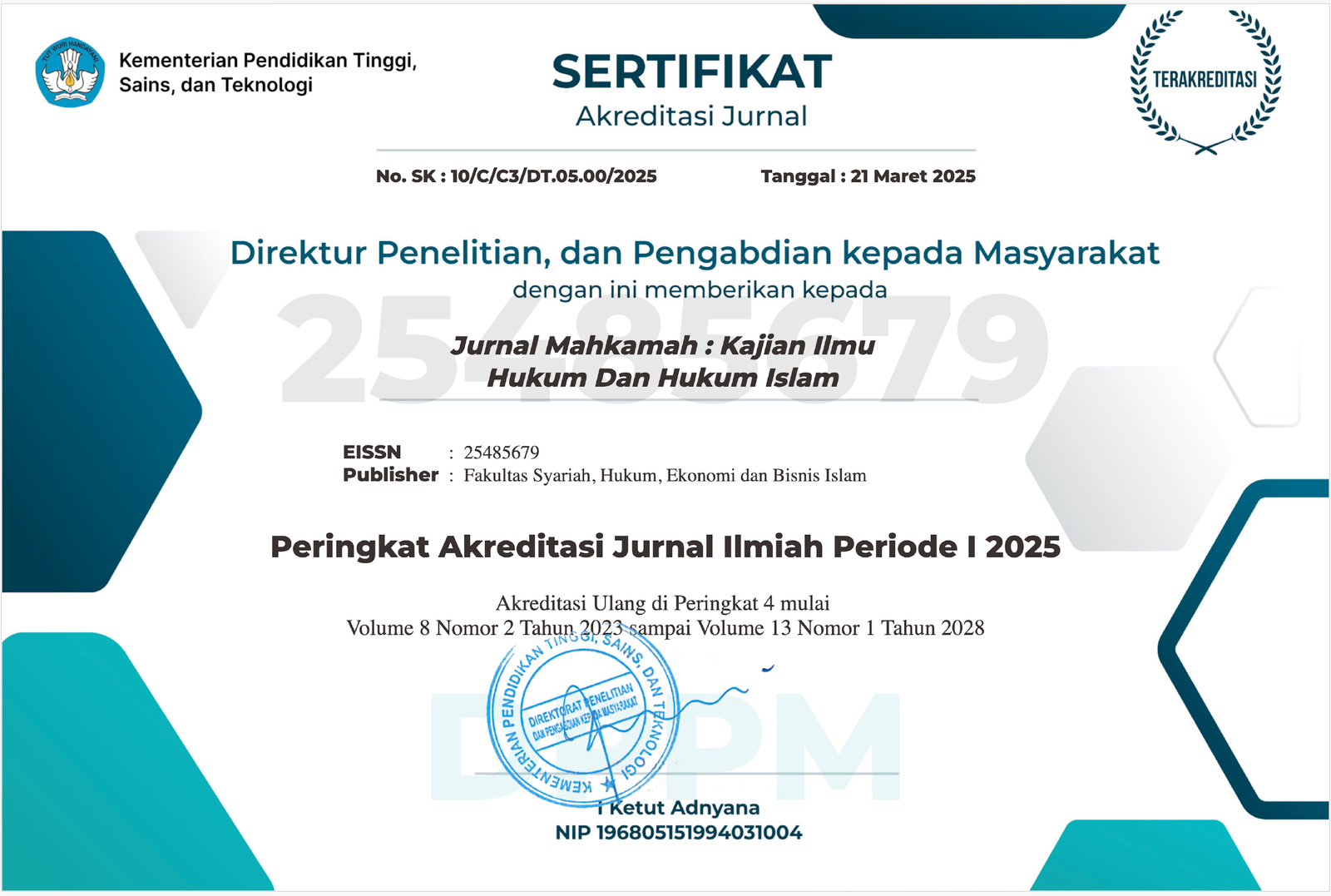IttiḥᾹd Al-Majlis on Marriage Contract According to Hanafiyah and Syafi'iyah (The Study of Online Marriage During Covid-19)
Nikah Online
DOI:
https://doi.org/10.25217/jm.v7i1.1871Keywords:
Covid-19, Hanafiyah and Syafi’iyah, Ittiḥād al-Majlis, Online MarriageAbstract
Ittiḥād al-majlis is one of the terms in the discussion of the marriage contract. Hanafiyah and Syafi’iyah differ in the ittiḥād al-majlis. This disference has implications for its application in implementation of online marriage contracts during the covid-19 pandemic. Analysis of the methodology for determining the law is important to study because there has been an online marriage in the city of Medan during the Covid-19 outbreak. This paper aims to explain how the rules of the Hanafiyah and Syafi’iyah schools in understanding ittiḥād al-majlis, and how the law of online marriage during the Covid-19 pandemic according to Hanafiyah and Syafi’iyah. This paper is a normative legal study, which examines the legal rules applied in the Hanafiyah and Syafi’iyah schools. The theory of ushul fiqh, namely how the rules are applied by these two schools to determine the meaning of a word. This study found that: First, Hanafiyah and Syafi’iyah have strong argument in giving the meaning of the majlis. Second, Hanafiyah interprets majlis as a word that indicates time, so that the unity of the place is not a condition for the validity of the marriage contract. As for Syafi’iyah, majlis is a word that indicates time and place, so the marriage contract must be in one place, where if the unity of the place is not fulfilled, then the marriage is invalid
Downloads
Published
How to Cite
Issue
Section
License
This work is licensed under a Creative Commons Attribution-ShareAlike 4.0 International License.
Authors retain copyright and grant the Jurnal Mahkamah : Kajian Ilmu Hukum Dan Hukum Islam right of first publication with the work simultaneously licensed under a Creative Commons Attribution License (CC BY-SA 4.0) that allows others to share (copy and redistribute the material in any medium or format) and adapt (remix, transform, and build upon the material) the work for any purpose, even commercially with an acknowledgment of the work's authorship and initial publication in Jurnal Mahkamah : Kajian Ilmu Hukum Dan Hukum Islam.
Authors are able to enter into separate, additional contractual arrangements for the non-exclusive distribution of the journal's published version of the work (e.g., post it to an institutional repository or publish it in a book), with an acknowledgment of its initial publication in Jurnal Mahkamah : Kajian Ilmu Hukum Dan Hukum Islam.
Authors are permitted and encouraged to post their work online (e.g., in institutional repositories or on their website) prior to and during the submission process, as it can lead to productive exchanges, as well as earlier and greater citation of published work (See The Effect of Open Access).









